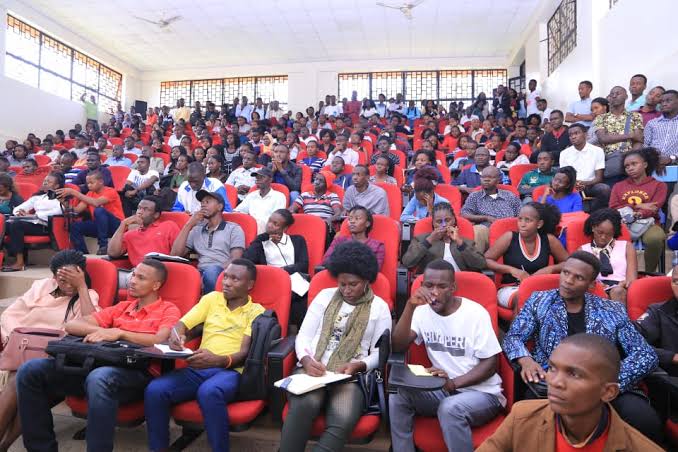
Three Makerere University students have been chosen to represent Uganda in the Huawei ICT Global Competition which is at its regional final stage in South Africa.
These top three students who were chosen on merit excelled in the preliminary and national final exams of the competition which was carried between October and December 2019.
This is the second edition of the Huawei ICT Competition in Uganda with over 2500 students who registered to participate and out of those 100 excelled to the national final exam.
With the theme “Connection, Glory, Future”, the Huawei 2019-2020 Global ICT competition aims at providing a platform for global ICT talents to showcase their ability, compete and communicate, encouraging ICT-related study, and drive the growth of a robust ICT talent ecosystem.
The 2500 competition participants from Makerere, Kyambogo, Mbarara University of Science and Technology, Nkozi, Mbarara, Kabale, Lira, Gulu, Muni, UCU and MUBS accessed learning material free of charge on the Huawei online learning platform in the various courses such asNetwork and Cloud track.
The networking track consists of Router & Switch, Security and wireless LAN while Cloud track consists of Artificial intelligence, Big Data, Cloud Computing, and Storage.
These studied and were subjected to preliminary and national exams of which the top three students who excelled all come from Makerere University.
These are; Magola Kenneth, Okello Stephen and Mudulo GeraldThese are expected to go to South Africa on March 22, 2020, to participate in the regional final competition with other African countries and later in May they will travel to Shenzhen, China for the global final that shall include participants from the rest of the world.
Mr. Liaoshuangquan, the Huawei Uganda Human Resource Director, noted that the competition is very relevant to every ICT student and professional because it’s a comprehensive approach of skills development for employment, enhanced productivity and growth.
“The Huawei ICT Competition and Academy is a comprehensive approach of skills development for employment, enhanced productivity and growth. Training contents in this program has been aligned with the skills requirements in the job market.
That is why we re-dedicate ourselves to working even more closely with universities across the country to better equip students with the next generation of technologies and create the platform for the Ugandan students to demonstrate they are capable of maturing into world-class experts,” said Mr. Liaoshuangquan.
The second edition of this skilling competition began in October 2019 with several roadshows in the earlier mentioned universities and also a boot camp training to prepare the competition participants to do the exams.
Liaoshuangquan also noted that the top 11 students among the 100 national finalists shall be awarded Huawei Professional certificates, Huawei gift devices and job/internship opportunities at Huawei, at a ceremony to be held in March.
Through the continued initiative to bridge the ICT skills gap and fostering ICT talent pool needed for national social-economic development, Huawei Uganda has been working with government and academic partners since May 2019 to open up its academies in various universities of Uganda.
So far, six academies have been opened in Makerere, MUBS, Soroti, Muni, Nkozi, Mbarara and Kabale University.
However, our efforts to secure details about the competition from Huawei’s communications manager Allan Kyobe were futile after he ignored answering questions posed by the writer.
It should be noted that in December 2014, the United Nations General Assembly adopted a resolution declaring 15th July as World Youth Skills Day, with a goal of achieving better socio-economic conditions for today’s youth as a means of addressing the challenges of unemployment and underemployment.
In Uganda, the government and the private sector have put a lot of effort to close the existing digital divide.
Some of the really noticeable efforts include; Presidential Initiative on Science and Technology which was started purposely to enhance the development of science and research in the country.
The Uganda Industrial Research Institute (UIRI), the Uganda National Council of Science and Technology (UNCST), Makerere University Institute of Science and Technology/Food Science, and the various research stations across the country that have been able to benefit from this initiative of the president.
In 2012 Uganda ranked among the top three countries with advanced technological and innovation capabilities in Africa, according to a study conducted by Martin Prosperity Institute of the US.
At the time, globally, Uganda ranked among the 82 world nations which have advanced technology and innovation capabilities. The rest of African countries were not ranked for lack of data to measure the relative standing on technology, innovation, human capital and other measures of economic competitiveness.
The principal authors of this study, Charlotta Mallander, and Kevin Stolarick recognized that technology played a great role in economic progress and that Uganda was a good case study.
